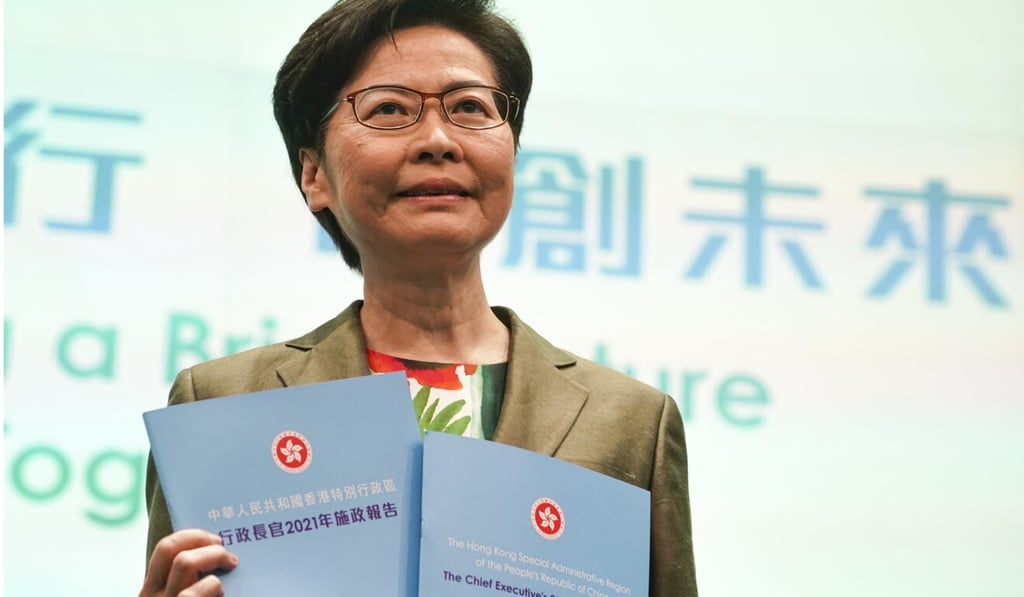Advertisement
Carrie Lam sets Hong Kong up to enhance role as link between China and international financial markets in policy address
- The government’s plans will further consolidate Hong Kong’s unique role in connecting international investors and mainland markets, SFC chief says
- City’s financial regulators set up working group to study the feasibility of promoting the trading of yuan-denominated securities in Hong Kong
Reading Time:3 minutes
Why you can trust SCMP
1

Carrie Lam Cheng Yuet-ngor, Hong Kong’s leader, on Wednesday outlined a number of measures aimed at further enhancing the city’s role as an international financial hub amid an ongoing integration with Beijing’s Greater Bay Area development plan.
The measures laid out by Lam, who was giving her last policy address as the city’s chief executive, included allowing mainland Chinese investors to trade Hong Kong stocks in the yuan and deepening collaboration between exchange operators in Hong Kong and Guangzhou for the introduction of carbon emissions futures contracts.
“The government’s plans to strengthen Hong Kong’s offshore yuan businesses and mutual market access arrangement, along with initiatives to develop Hong Kong into a green finance centre, will further consolidate Hong Kong’s unique role in connecting international investors and the mainland markets,” Tim Lui, chairman of the Securities and Futures Commission (SFC), said on Wednesday.
Advertisement

The measures outlined by Lam are aimed at boosting Chinese efforts to further open up the mainland markets and the internationalisation of the yuan. Since Hong Kong already has an active stock market and a mature financial system accessed by international investors, the city is ideally placed to improve the links between China and world markets.
Advertisement
The city’s financial regulators, such as the SFC, said on Wednesday that they had set up a working group along with the Hong Kong Monetary Authority, the city’s de facto central bank, and exchange operator Hong Kong Exchanges and Clearing (HKEX) to study the feasibility of promoting the trading of yuan-denominated securities in Hong Kong.
Advertisement
Select Voice
Select Speed
1.00x